NEDEN ZEYTİN DALI? NEDEN AFRİN VE SONRASI?
TRT World’ü bu muhteşem anlatım için tebrik ederim. Türkiyenin haklılığını çok güzel özetlemiş… (Arkadaşlık listesinde yabancı olanlar paylaşıp bilgilendirsin…)
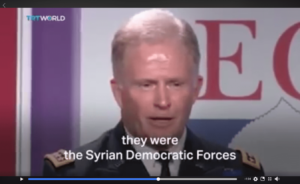
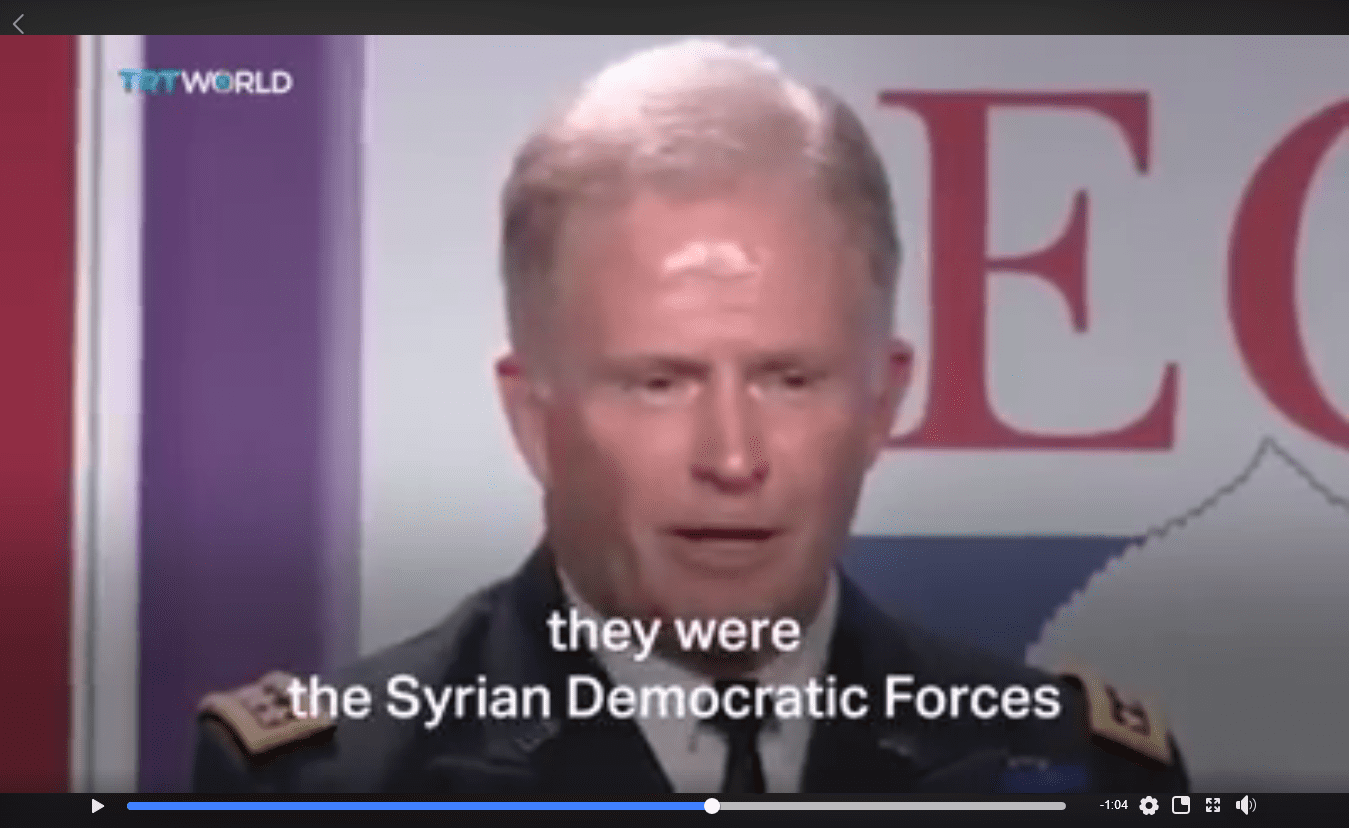
NEDEN ZEYTİN DALI? NEDEN AFRİN VE SONRASI?
TRT World’ü bu muhteşem anlatım için tebrik ederim. Türkiyenin haklılığını çok güzel özetlemiş… (Arkadaşlık listesinde yabancı olanlar paylaşıp bilgilendirsin…)

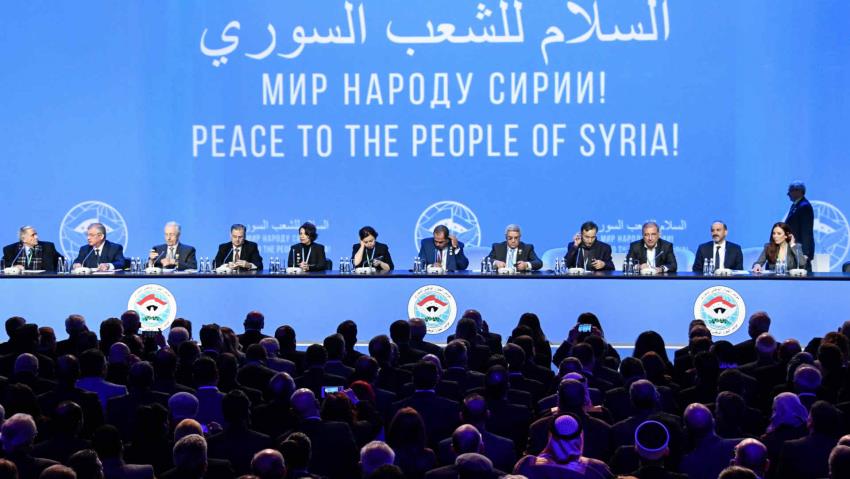
 The Syrian National Dialogue Congress held in Russia’s Sochi on January 28-29 was aimed to boost the process for building a peaceful future for Syrian people in a war-devastated country and to define the country’s political compass for the next years. The Congress, sponsored by Russia, Iran and Turkey, gathered over 1,500 participants from various groups of Syrian society, including representatives from political parties, opposition groups and ethnic and confessional communities.
The Syrian National Dialogue Congress held in Russia’s Sochi on January 28-29 was aimed to boost the process for building a peaceful future for Syrian people in a war-devastated country and to define the country’s political compass for the next years. The Congress, sponsored by Russia, Iran and Turkey, gathered over 1,500 participants from various groups of Syrian society, including representatives from political parties, opposition groups and ethnic and confessional communities.
While the Congress itself did not aim to achieve the immediate political reconciliation over Syria, its main focus was to revive Geneva talks. According to Russia’s Foreign Minister Sergey Lavrov, the forum was expected to “create conditions for staging fruitful Geneva process”.
Besides, the Congress was some kind of alert to boycotting countries and their procrastination to reinforce the 2254 UN Security Council Resolution for Peace Process in Syria, adopted in 2015. According to the resolution, the future of Syria should be determined by its people. However, the country has experienced forced intervention and external interference that prevented it from paving ways for a peaceful future ever since.
Ironically it may seem, the so-called peace process for Syria that has been joined by many countries pursuing different strategies including diametrically opposite approaches of Russia and the United States, became a fruitful soil for radically oriented groups that eroded the country’s sovereignty. The delay in reinforcing the 2254 UN Security Resolution by international community can lead to further monetization of Syria’s natural resources by terrorist organizations and cause major security threats for the entire international community.
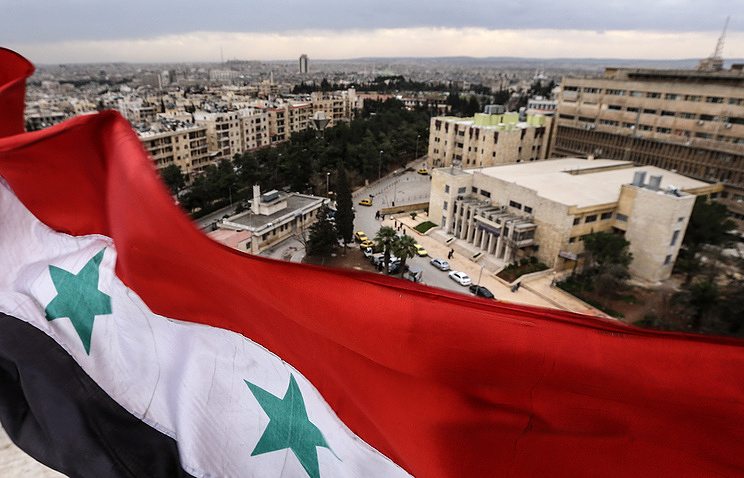 Perhaps, the most important result of the Sochi Congress has been an agreement of all participants to consolidate their efforts in stabilizing the Syria’s future and to secure the territorial integrity of the Syrian Arab Republic. The concerns of the Syrian opposition claiming the Sochi Congress would, on the contrary, hazard the international peace process could not be more baseless since the Congress was supported by the UN, the main sponsor of the Geneva talks.
Perhaps, the most important result of the Sochi Congress has been an agreement of all participants to consolidate their efforts in stabilizing the Syria’s future and to secure the territorial integrity of the Syrian Arab Republic. The concerns of the Syrian opposition claiming the Sochi Congress would, on the contrary, hazard the international peace process could not be more baseless since the Congress was supported by the UN, the main sponsor of the Geneva talks.
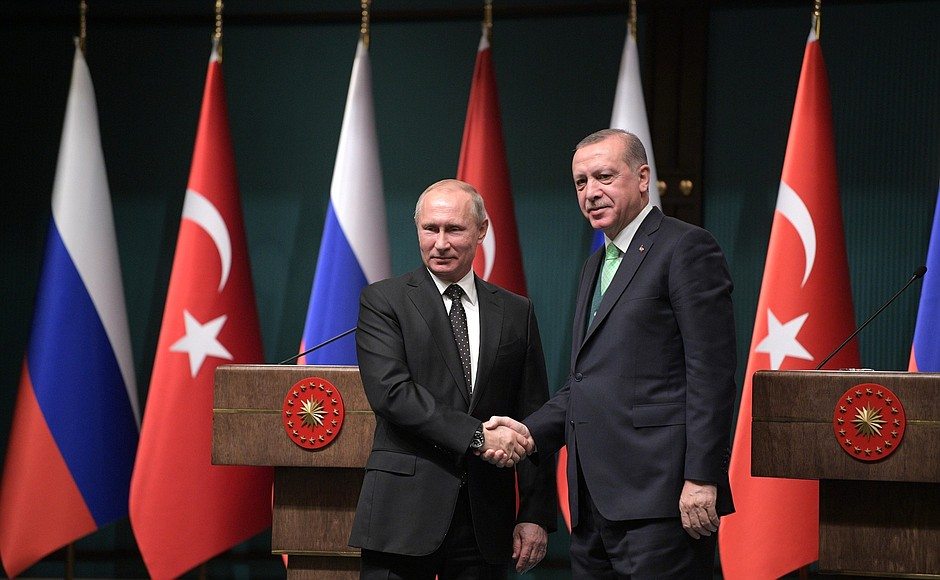
 Russian-Turkish relations have experienced such rocky times in the last couple of years that it would have been almost impossible to predict the further development of the partnership in the foreseeable future. Yet, since the beginning of 2017 the relationship between the two countries have started to warm up as both leaders, Putin and Erdogan have managed to find some important touch points to strengthen the sustainable economic ties with strategic political cooperation.
Russian-Turkish relations have experienced such rocky times in the last couple of years that it would have been almost impossible to predict the further development of the partnership in the foreseeable future. Yet, since the beginning of 2017 the relationship between the two countries have started to warm up as both leaders, Putin and Erdogan have managed to find some important touch points to strengthen the sustainable economic ties with strategic political cooperation.
The recovery of the diplomatic relations has been gained much due to the Turkey’s collaboration with Russia and Iran over Syria and their further fight against terrorism and the ISIS in the region. The successful development of the Astana process led by Russia, Turkey and Iran and the perspectives of hosting the National Dialogue Congress in Russia’s Sochi have raised a wave of anxiety in Washington as the United States were counting much on Ankara’s support in pursuing its military plans in Syria. Provided that Turkey’s decision to join Russia and Iran and its engagement in the Astana process met some serious controversies and tensions with the United States and the European Union one cannot help but ask the question if Turkey is shifting away from NATO toward the East.
The facts speak for themselves: since the beginning of 2017 Presidents Vladimir Putin and Recep Tayip Erdogan have held eight face-to-face meetings not to mention multiple visits of Russian and Turkish diplomatic representatives and military officers in both ways.
Apart from the cooperation over Syria and the joint fight against terrorism, the renewal of business, trade and economic relations as well as the prospective cooperation in the energy sector might launch a new era of partnership for both Russia and Turkey not only at the international or at federal levels but also at the regional levels as well.
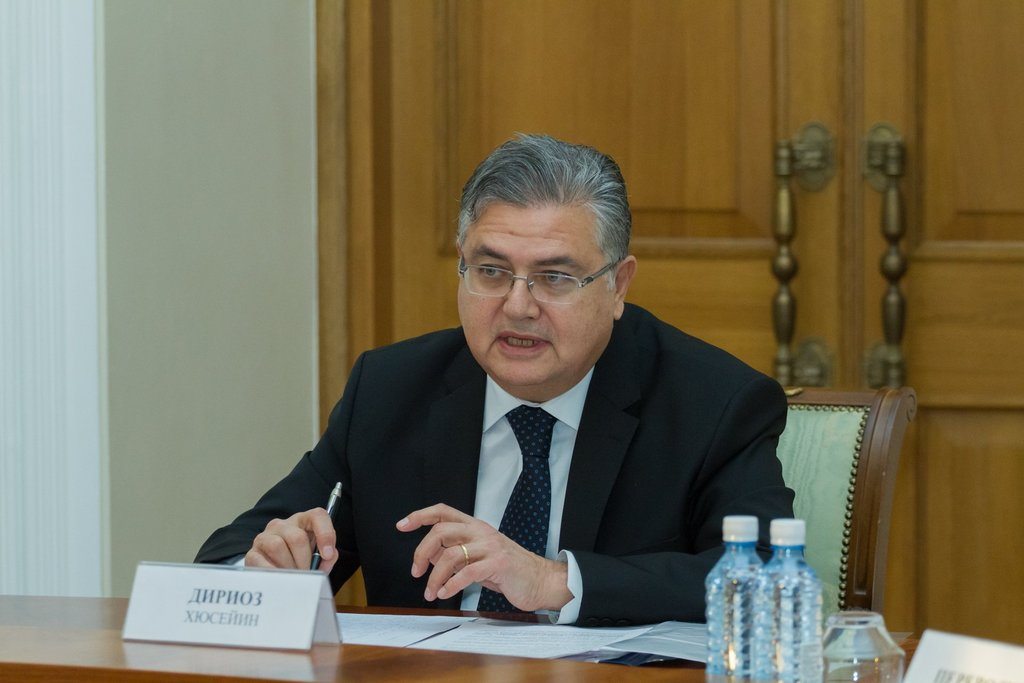 On December, 13-14, Husseyin Dirioz, Ambassador of the Turkish Republic to Russia visited the city of Yekaterinburg, situated in the Urals and known as the country’s industrial hub. During his meeting with the local government authorities Mr. Dirioz expressed the intention to strengthen the mutual collaboration in such industries as machine building, oil and gas, construction and development, pharmacy and chemical sector as well as in the spheres of tourism, science and education.
On December, 13-14, Husseyin Dirioz, Ambassador of the Turkish Republic to Russia visited the city of Yekaterinburg, situated in the Urals and known as the country’s industrial hub. During his meeting with the local government authorities Mr. Dirioz expressed the intention to strengthen the mutual collaboration in such industries as machine building, oil and gas, construction and development, pharmacy and chemical sector as well as in the spheres of tourism, science and education.
However, a closer partnership with Russia is pulling Ankara in quite a confusing situation in which Turkey will have to make bigger efforts to keep the balance with the U.S. and the EU. While the European Union continues to remain the major region for Turkish exports Ankara still benefits from holding the NATO membership on some political and military matters. Given that, the United States will likely to start manipulating Turkey’s vulnerable position and take the target the Turkey’s most sensitive issues. For instance, Washington has reportedly been encouraging Syrian Kurds for military interventions to the territories on the East bank and further overtaking the key Syrian natural resources fields. The move, explained by the United States as an effort to create a Syrian Kurdish autonomy, has been highly criticized by Ankara as a driving force for the U.S. that will enable Washington to take control over Ankara and Damask.
But despite both leaders Recep Tayip Erdogan and Vladimir Putin look at the mutual partnership through the prism of their domestic interests which sometimes causes some structural controversies in such questions as pursuing policies towards the U.S. and the E.U, the possibility of a fast development of Turkey-Russia cooperation into a strategic partnership is very high. What’s bringing together Turkey and Russia today is perhaps the common mistrust of the Western policies. The emotional statements by U.S President Donald Trump such as announcement of Jerusalem as an Israel’s capital, the U.S. support of Syrian Kurds (that directly crosses the Ankara policy towards the Kurds) consolidate the strategic collaboration between Moscow and Ankara against “moody” President Trump and unfold incredible opportunities for expansion of economic and trade relations between Turkey and Russia. Moreover, with Turkey’s recognition of the Crimea as a Russian territory Moscow will open the “green corridor” for Turkish companies that will also let Turkey pursue its policy towards the Crimean-Tatar community in the peninsula.
As the historical experience proves, the strong partnerships are created by those countries who have manage to resolve the most controversial and unwanted situations between each other. The common historical background, strong cultural and ethnic ties and the geographic proximity can become a solid ground for Russia and Turkey to build a strong alliance.




Publisher, The Calfornia Courier
Turkey’s President Recep Tayyip Erdogan came to power 14 years ago as a devout Muslim, announcing that he intended to eliminate corruption from Turkish politics.
As he consolidated his authority and moved from Prime Minister to an autocratic President, he forgot his promises and engaged in the very corrupt policies which he had condemned. As British historian Lord Acton has said… “power tends to corrupts; absolute power corrupts absolutely!”
This week, I wish to cover Erdogan’s fourth corruption scandal, starting by summing up the first three involving him and his family.
The first case is regarding Erdogan receiving an oil tanker worth $25 million as a gift from Mubariz Mansimov, an Azeri billionaire, in 2008. At Erdogan’s request, Mansimov later became a Turkish citizen and changed his last name to Gurbanoglu.
The second case occurred in December 2013, when Erdogan and four of his Ministers were implicated in a multi-million dollar corruption probe. Faced with litigation, all four Ministers resigned. However, Erdogan interfered in the trial, dismissing the lawsuit and firing the prosecutors and policemen who had exposed his Ministers’ corrupt practices! The private phone conversations between Erdogan and his son Bilal had been recorded, revealing their discussions on how to hide the hundreds of millions of dollars in cash they had received mysteriously!
The third case of corruption is the ongoing trial in New York City regarding a billion-dollar scheme to smuggle gold for oil from Turkey to Iran in violation of U.S. sanctions on Iran. Reza Zarrab, a Turkish-Iranian gold dealer pleaded guilty last week to all seven charges, exposing the participation of a Turkish banker, Mehmet Hakan Atilla, and seven other defendants, including Turkish Economy Minister Zafer Caglayan, who was accused of receiving millions of dollars in bribes from Zarrab in exchange for arranging the illegal scheme. Zarrab also implicated Pres. Erdogan for having authorized the illegal gold for oil trade.
The fourth and latest corruption scheme involves members of Erdogan’s family who reportedly transferred $15 million to an off-shore company called Bellway Limited in the tax haven of Isle of Man, United Kingdom, in December 2011 and January 2012. This accusation was made by Turkey’s main opposition Republican People’s Party (CHP) leader Kemal Kilicdaroglu. The Isle of Man is a self-governing British Crown dependency in the Irish Sea between England and Ireland.
Party Chairman Kılıcdaroglu recently announced that a company was established on August 1, 2011 on the Isle of Man with a founding capital of 1 British pound. He revealed the bank statements and copies of the $15 million wire transfers to the Bellway Limited company:
— On December 15, 2011, Erdogan’s brother-in-law Ziya İlgen transferred $2.5 million, and on Dec. 26, 2011, $1.25 million.
— On December 15, 2011, Erdogan’s brother Mustafa transferred $2.5 million, and on Dec. 26, 2011, $1.25 million.
— On December 27, 2011, Erdogan’s father-in-law Osman Ketenci transferred $1.25 million, and on Dec. 28, 2011, $1 million.
— On December 27, 2011, Erdogan’s former executive assistant Mustafa Gündogan transferred $1.25 million, and on Dec. 28, 2011, $250,000.
— On December 29, 2011, Erdogan’s son Ahmet Burak Erdogan transferred $1.45 million, and on January 4, 2012, $2.3 million.
Kilicdaroglu filed a parliamentary motion requesting an investigation of the transfers. However, the majority dominated by Erdogan’s AK Party voted down the measure. When Kilicdaroglu was addressing the Parliament regarding the allegations against Erdogan, the State TV cut off the live transmission!
Turkish prosecutors announced last week that they are investigating the charges against Erdogan. However, as is widely known, no judge would dare to rule that Erdogan is guilty of any crimes, given the fact that many judges are dismissed or jailed for not complying with the Turkish President’s wishes.
As expected, Erdogan was furious at the allegations against his family. He declared that he would resign from his post if it is proven that he has a bank account in a foreign country. Ahmet Ozel, a lawyer for Pres. Erdogan stated that the bank documents publicized by Kilicdaroglu were “fake” and described the allegations as “lies.” Erdogan threatened that Kilicdaroglu “would pay a price,” and filed a lawsuit against him seeking $500,000 for defamation!

